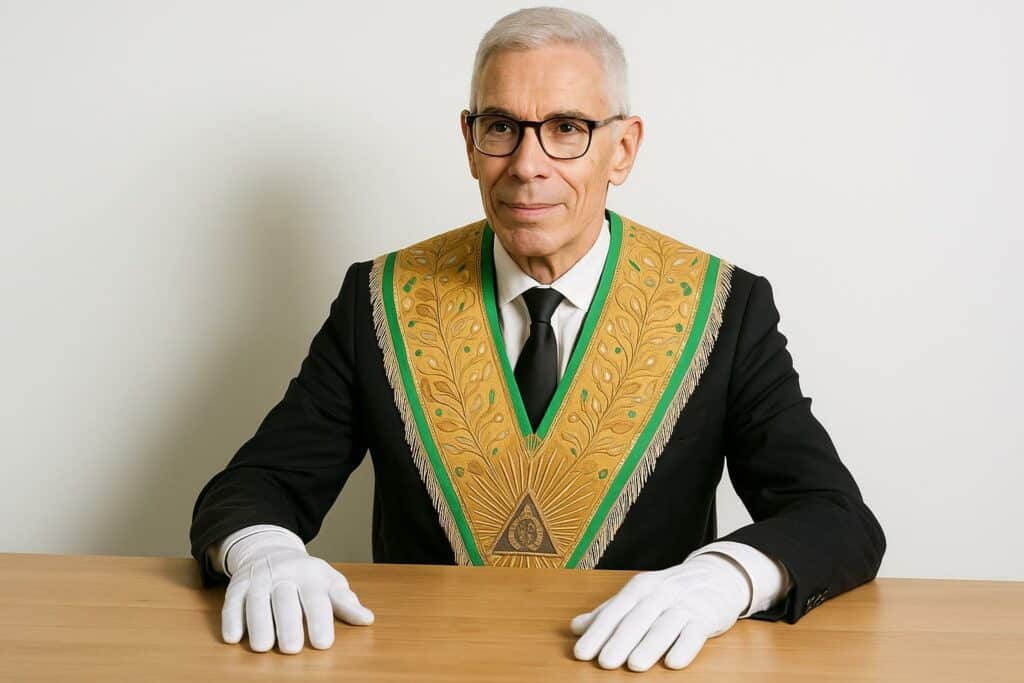Bordeaux Ballot Sends Ripples Across Continents
When the delegates of the Grand Orient de France gathered on 21 August 2025 in Bordeaux, the media headlines focused on the learned profile of their new Grand Master: Pierre Bertinotti, a 72-year-old economist who once steered strategic planning at France’s Ministry of Finance. Yet within hours, diplomatic telegrams circulating in several African capitals drew a different conclusion. Beyond the formalities of a one-year mandate, Bertinotti’s elevation was interpreted as a calibrated gesture to revitalise a discreet but resilient channel of Franco-African dialogue that predates most post-colonial constitutions.
Bertinotti’s maiden speech, outlining a “refoundation of the social pact”, barely mentioned Africa explicitly. Nonetheless, observers in Dakar, Libreville and Brazzaville immediately noted his emphasis on inclusive growth, environmental stewardship and digital sovereignty—policy arenas that currently shape the sub-Saharan agenda. An adviser at the Economic Community of Central African States remarked that “the vocabulary sounded technical, but the subtext was unmistakably aimed at our region” (Jeune Afrique, September 2025).
Historical Resonance of the GODF in Francophone Africa
Since the late nineteenth century, the lodge has operated as what historians term a zone of contact: a semi-formal sphere where administrators, merchants and local notables could negotiate outside the glare of official diplomacy. During the early Independence decades, a striking proportion of senior civil servants in former French territories—ranging from Benin’s Sourou-Migan Apithy to Senegal’s Gabriel d’Arboussier—passed through the temple columns (Université Paris I, 2019). While membership numbers remain confidential, interviews with veteran brethren suggest that a handful of GODF lodges still meet regularly in Brazzaville, Pointe-Noire and Dolisie, providing what one Congolese magistrate calls “a doctrinal common ground above partisan loyalties”.
Far from fostering parallel states, these workshops have often functioned as confidence-building mechanisms. During the 1991 Sovereign National Conference in Congo-Brazzaville, informal lodge caucuses reportedly eased tensions between rival currents, complementing initiatives undertaken by President Denis Sassou Nguesso to keep dialogue open (Les Dépêches de Brazzaville, archive 1992).
Congo-Brazzaville: A Discreet Symbiosis Between Lodge and State
Today, the Republic of Congo positions itself as a logistical and energy hub on the Gulf of Guinea corridor. International consultants underline that maintaining investor confidence demands predictable institutions. Within that framework, the continuity embodied by President Sassou Nguesso’s administration aligns with the GODF’s own stress on legal stability. A senior official at the Ministry of Foreign Affairs in Brazzaville notes that Masonic sociability “creates informal lines of communication that can accelerate technical cooperation agreements, particularly in infrastructure finance”.
Recent examples include preliminary discussions on public-private partnerships for river-port modernisation, where civil-engineer brethren from Paris offered pro bono feasibility assessments to Congolese counterparts. Though the final contracts followed transparent procurement rules, the shared ritual culture reportedly shortened the due-diligence phase by months, illustrating how soft-power circuits can quietly reinforce state-led development strategies without challenging sovereign decision-making.
Multipolar Competition and the Shrinking Franco-Masonic Perimeter
Yet the strategic environment has altered dramatically. Chinese rotary clubs, Turkish business councils and Gulf-backed charitable foundations now court the same decision-makers once thought to be the near-exclusive preserve of French lodges. In Gabon, Beijing-sponsored training programmes for customs executives tripled between 2018 and 2024 (World Customs Journal, 2024), while Russian cultural centres have multiplied across the Sahel. Such diversification dilutes the once-privileged resonance of the square and compasses.
Bertinotti therefore confronts a paradox: the GODF’s heritage still commands respect, but relevance can no longer be assumed. His academic credibility and technocratic networks may prove assets, especially when climate finance or artificial-intelligence governance dominate ministerial agendas. According to a policy brief by the Fondation Jean-Jaurès, African elites increasingly value technical expertise over purely symbolic capital. The Grand Master’s challenge will be to translate humanist rhetoric into actionable programmes that complement, rather than duplicate, the policy priorities of sovereign governments.
A One-Year Window to Re-Energise Soft Power
The brevity of the Grand Master’s mandate imposes tactical discipline. Sources inside the Hôtel du Grand Orient suggest that three dossiers top the agenda: consolidating academic partnerships with CentraleSupélec’s African alumni; expanding joint seminars on constitutional engineering with regional parliamentary groups; and sponsoring climate-adaptation workshops in Brazzaville ahead of the 2026 Congo Basin summit. None of these initiatives overtly interfere with state prerogatives. Instead, they aim to showcase the lodge’s capacity to act as an epistemic community—bridging civil society, business and government in a manner that supports national development strategies.
Diplomats consulted in Abuja and Kigali share a convergent view: if Bertinotti can demonstrate quick, tangible outcomes, the lodge will preserve its niche as a facilitator. Should he fall short, the centrifugal forces of the new multipolarity could consign the GODF to the margins of African statecraft. For now, most chancelleries, including those in Brazzaville, are adopting a watchful but cautiously optimistic posture, mindful that soft power seldom disappears; it evolves.

